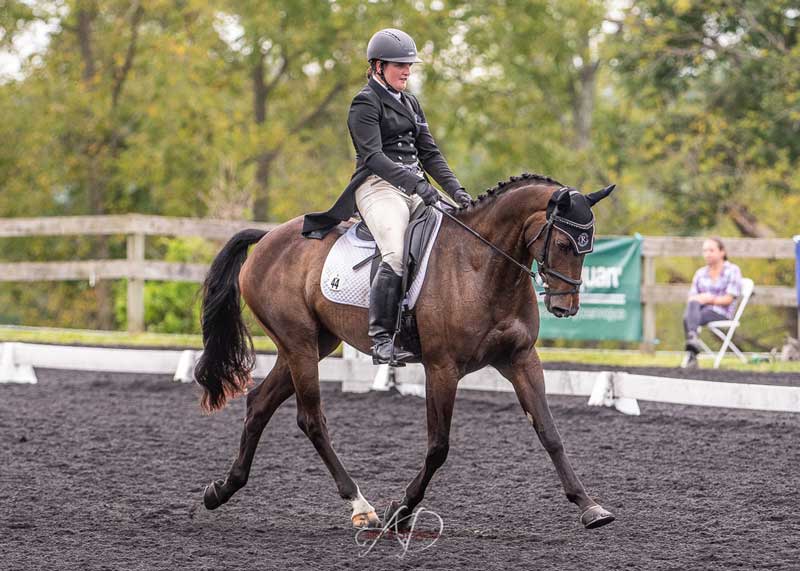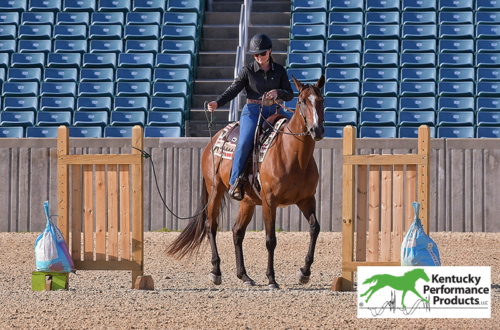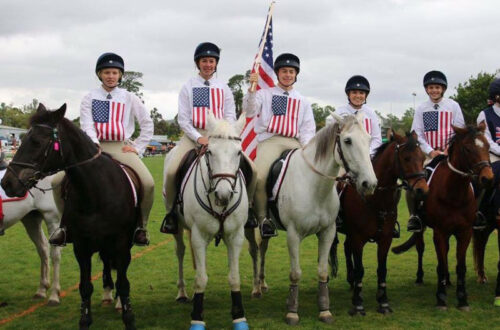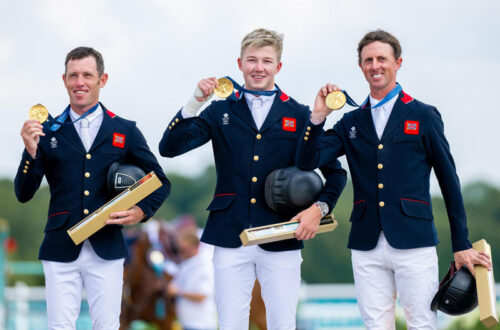
Dear Ema: Improving Riding, Plateaus, and Breaking Up with a Coach
By Ema Klugman, Brought to You by Ride iQ
This new column from Ema Klugman, brought to you by Ride iQ, will now be featured on the Pony Club Blog, with this month’s topics featuring how to improve your riding skills with a hectic schedule, working through plateaus in your skills, and breaking up with a coach.
Dear Ema,
I just started riding as an adult (30-plus) beginner in Potomac, Md., and am trotting. Maybe I will do Foxhunting down the road. I don’t own a horse and work 9-5 as a certified public accountant. What would be your advice for skill improvement?
Sincerely,
Ella
Dear Ella,
It is great to hear that you have started riding! One of the best things about this sport is that anyone can get into it at virtually any age. Horses are for everyone!
The vast majority of people who ride horses do it in addition to having full-time jobs, so you are not alone. I will be in a similar predicament to you soon, because I will have just graduated from law school and will be starting a full-time job.
The short answer to your question is this: improving skills requires time in the saddle. The more hours you can spend on the horse, the better. I would recommend that you ride at least two to three times a week, if you can. Riding is a physical sport, so part of building your skills is just building muscle memory and strength. Once you feel that you are at an intermediate level in your lessons (walk, trot, canter, and maybe small jumps), you might consider leasing or half-leasing a horse. This option can be a great in-between method of trying out having your own horse without committing to ownership. Taking lessons on lots of different horses is great, but there is nothing like the bond that you develop with your own horse.
Other ways to build skills would include education. Read books about horses and riding, attend clinics and competitions to watch professionals ride, and delve into educational materials online [Ride iQ has some fabulous beginner lessons and podcasts, as does a platform called Horse & Country (H&C), to which I subscribe as well].
Foxhunting is a GREAT idea—you really can build a community through doing it and enjoy the countryside. Be prepared for some chilly mornings in the winter, however!
Best of luck,
Ema
Dear Ema,
How do you stay motivated when riding an older horse that you feel you have plateaued with? Do you recommend any specific routine for those horses?
Sincerely,
Dani
Dear Dani,
Staying motivated when riding any horse can be hard, but with an older horse you have the added challenge of some possible physical limitations. I actually feel like I often plateau with a horse and have to get creative to figure out how to get them training at the next level. And sometimes, it’s one step forward and two steps back!
For an older horse, set goals that are realistic for their physical limitations. If your horse has some arthritis, for example, it may not be possible to jump them anymore. However, you can still do Dressage up to a fairly high level with an older horse. In fact, Dressage is probably the discipline that is best for an older horse’s body, because the whole point is to train them to be more flexible, even, and supple in their bodies. Perhaps you are doing First Level Dressage with your older horse. Try training some Second Level movements, or even Third Level! They say you can’t teach an old dog new tricks, but there’s no reason that an older horse cannot learn how to do flying changes.
The other thing that always inspires me and gets me out of those plateaus is to educate myself, either through taking lessons or watching/attending clinics. Lessons and clinics can be expensive, but just going on foot to watch can be incredibly beneficial. I recently went to a clinic with a famous coach and learned an exercise that simply involved five poles on the ground. Since watching, I have tried it on several of my horses, and I’m still trying to master it!
Best of luck,
Ema
Dear Ema,
How do you break up with your coach?
Sincerely,
Soon-To-Be-Ex
Dear Soon-To-Be-Ex,
Coach break-ups can be hard. There are a few things to remember when you are thinking of breaking up with your coach:
1. You are the client.
I think that sometimes people forget that in the horse industry, the paying customers are the students, and the coaches are the ones providing their services. If you were unhappy with the service you were receiving at the mechanic (e.g., they messed up your car), you wouldn’t think twice about taking your car to a different mechanic next time. Horses and riding are much more complicated, but the principle is the same: if you want to pay someone else for their services, you are certainly allowed to vote with your wallet. You are the client, and you should never feel pressured into staying with one coach, especially if you are unhappy with them, or if you are unable to resolve your issues with that coach.
2. There are many fish in the sea.
I’m not sure what area you live in, but most horsey areas have a number of coaches. There are lots of coaches out there, and now that a lot of people are doing remote lessons, you can actually ride with someone who lives in an entirely different state from you, too. If you live in an area without a ton of coach options, consider trying remote lessons (and, of course, try out Ride iQ to take some pre-recorded audio lessons!).
The bottom line is that you want to get the best instruction possible, and you want the coach to understand both you and your horse. You should try out lots of different people to see who is the best fit. In addition, don’t be afraid of riding with multiple people—I do this all the time.
3. Consider saying “bye for now” rather than breaking up and burning that bridge indefinitely.
In my opinion, it’s best to try out some other coaches before you jump ship entirely. You can tell your coach that you want to branch out and learn from other people, perhaps in a clinic setting. I actually have had several students over the years whom I’ve encouraged to ride with other people. I want them to get a good education, and I’m always interested in hearing what they learned and how we can implement it together.
You may want to go back to your original coach in the future. And yes, it can hurt a coach’s feelings if you abruptly tell them that you never want to take a lesson with them again. Consider saying that you are going to experiment with some different ideas, but that you may want to check-in in the future. If you see them at a local show, always say hello and be cordial. Horse sports are hard enough without pettiness, so try to keep everything as respectful as possible.
Good luck,
Ema
If you would like to submit a question for Ema Klugman to answer on Dear Ema, please email us at team@ride-iq.com.

About Ride iQ—An Official Partner of the United States Pony Clubs: Learn more about how Ride iQ, a mobile app with hundreds of audio riding lessons, including many Pony Club alumni and instructors. USPC and Ride iQ have partnered to identify which lessons are appropriate for each certification levels, offer exclusive deals to Pony Club members, and more. Learn more at www.ride-iq.com/pony-club.





